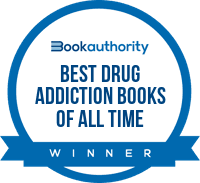How the 12 Steps Can Help Everyone - by Professor Gabriel Segal
The end of my afflictions and the power of The Twelve Steps
I was born in 1959. From as far back as I can remember until 2011, I suffered from severe forms of anxiety, depression, and addiction. I had many years of therapy of different kinds. I was prescribed pills. None of that helped. And some made matters worse.
Eventually, I thought I would give the 12-step approach a chance. I was initially put off by what appeared to be a strongly religious streak in the program, something that as an analytic philosopher and cognitive scientist, I could not accept. But I soon learnt that no religious beliefs are required for it at all. I was, and remain, an atheist. And the program worked. Brilliantly. I no longer suffer for my afflictions, and I feel entirely serene, relaxed and content.
How did the 12 steps effect this remarkable transformation?
The basic problem was that I was not happy being myself, as I really am, in this world as it really is. There were three distinguishable sources of discontent involved: 1. Me. 2. The rest of the world. 3. My relationship to the rest of the world. Through the program, I learned how to accept all three and to be content with them. But more than that, I have learned how, by developing my relationship with the world, I can continue to become increasingly serene and happy being me in it.
The steps worked for me in the following five ways:
1. They showed me how to make a thorough and searching examination of myself, without fear or judgement. This enabled me to be realistic and objective about myself, and thus allowed me to begin to deal with the problems.
2. They showed me how to understand and work through my emotional sources of internal strife: anger, resentment, guilt, fear, jealousy, feelings of low self-esteem, wounded pride, disappointment, dissatisfaction, frustration, irritation, existential angst and the like. They showed me how to do this in a methodical and straightforward way, without psychoanalytic interpretation or anything much of that ilk.
3. They showed me how to spot incipient turbulent emotions and nip them in the bud, before they cause me or anyone else too much grief.
4. They showed me how to be realistic about those aspects of the external world that I cannot change and accept them with equanimity.
5. They showed me how to appreciate to the full all that is good in the world and my place in it, and how to go with the flow of life and enjoy the ride.
If you would like to give it a go, I happen to have a written a short, easy-to-follow guide: Twelve Steps To Psychological Good Health and Serenity - A Guide.
Professor Gabriel M. A. Segal is an academic philosopher and author, and has published many papers on addiction and recovery.




